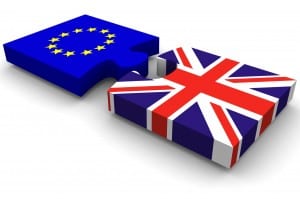Too complicated to be trusted? Brexit, Europeanisation and Complexity
By yjmsgi3, on 21 April 2016
By Filipa Figueira
As the Brexit debate rages throughout the UK, British people are clamoring for “facts” to help them decide. Yet neutral facts on the EU referendum seem hard to come by. “All I hear is opinions, but I want facts” scream, tweet and facebook the masses. So why are they not being given those?

The answer is that, when it comes to what will happen after the EU referendum, there are no facts …only forecasts. No-one can predict the future, and therefore no-one can tell what the economic growth rate of the UK will be if it leaves the EU, how many jobs (if any) will be lost, or what will happen to your grocery bill.
Economists will gladly provide you with estimates, but those are, well, estimates. Any minor change in the economic model used can produce a significantly different result, so it is no wonder that radically different numbers are being branded about, depending on the economist’s side of the campaign.
One of the key arguments of pro-Brexit advocates is precisely the difficulty that the average person has in understanding the EU. “Brussels” is seen as a mysterious labyrinth of hidden complexity, which cannot be understood – and therefore, cannot be trusted – by most Brits.
If may be of little comfort for them to hear that the EU labyrinth is hard to understand even for the EU officers who run it and for the EU scholars who study it. The EU is a moving target, a constantly changing animal, an entity forever evolving through what is known as the process of “Europeanisation”.
Europeanisation is any transformation that occurs because of the EU. This includes countries adapting their institutions to better deal with the EU, or to attract more EU funding. It also includes people feeling more European when they cooperate with other European countries – a process to which the UK appears staunchly impervious. And yes, it may include an increase in the scope of policymaking at EU level (reductions in that scope do happen as well, and can be called “de-Europeanisation”).
This is a constant process, and one which is by nature difficult to measure and define. The vast academic literature on Europeanisation struggles with this task, and usually ends up focusing on the more …academic question of defining what they mean by “Europeanisation”. Such a question can be endlessly debated, leaving academics with little time to actually research and clarify Europeanisation itself.
Could the Remain side argue that the undeniable complexity of Europeanisation is a point in its favor? Probably not. The leavers have it on this one. The question becomes, then, whether the added complexity is a worthwhile trade-off for the benefits of EU membership.
The public will not get facts on this – only those pesky forecasts – so they will need to use their brains. Why are all other European countries happy to put themselves through the
ambivalence and immeasurability of the EU labyrinth? Why is the debate about how many jobs will be lost after a Brexit, rather than about how many jobs will be gained?
An assessment based on common sense, rather than “facts”, shows where the trade-off lays. Europeanisation brings with it complexity and a loss of sovereignty on some policy areas. But on the other hand, it offers significantly better economic conditions and geopolitical clout, and spares the British economy from an (impossible to estimate) “uncertainty shock”.
As with any trade-off in life, the solution lies in finding the right balance. Clearly Brits do not wish to give away all their sovereignty, but neither do they wish to ruin their economy or face geopolitical isolation. So here is how things stand.
The current trade-off which the EU is offering involves a small loss in sovereignty (Britain retains control over all its key policies and all but a tiny percentage of its finances) in exchange for significant economic gains (being part of, and a key decision-maker within, the Single Market) and geopolitical benefits (being part of the continent’s decision-making, while remaining the United States’ most valued ally cum Trojan horse).
Will continuing Europeanisation disrupt this balance? That seems unlikely. A clear gap has emerged at EU level. On one side are the countries which are members of the Euro currency, and willing to accept deeper integration to guarantee its financial survival. On the other side are those, including the UK, which have decided to stay outside the Eurozone, and are clearly staying out of that process.
The only true result which David Cameron got out of his Brussels “renegotiation” was a guarantee that the UK could stay out of, and be unaffected by, that process (in fact that agreement was being discussed anyway, and would have been achieved with or without a “renegotiation” – but let us leave the Prime Minister’s theatrics out of this important discussion).
Europeanisation is, therefore, clearly moving towards a two-speed rhythm. Fast and bumpy for Eurozone members; slow and comfortable for more independent-minded countries such as the UK.
The trade-off on offer is a positive one for Britain, and about to get even better.
Whatever the result of the EU referendum, academics will carry on forever defining Europeanisation. Let us hope that Britain will still be a part of it.
Note: This article gives the views of the author(s), and not the position of the SSEES Research blog, nor of the School of Slavonic and East European Studies, nor of UCL

 Close
Close


